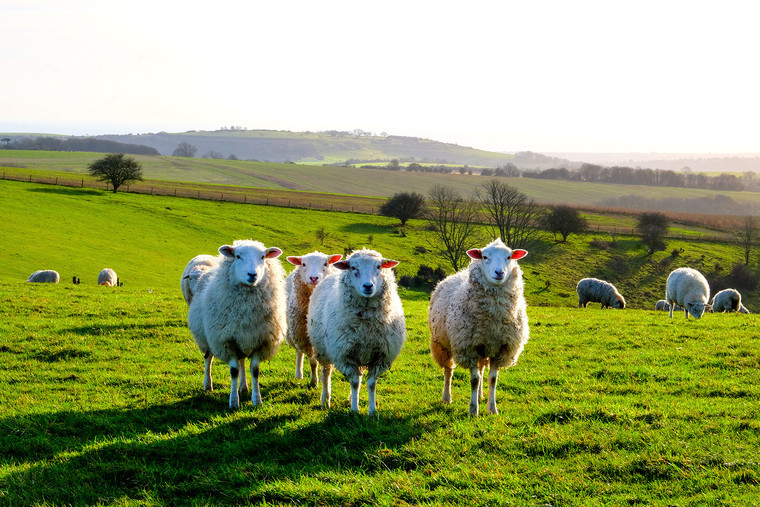Both the National Sheep Association (NSA) and the NFU expressed their concerns at news of a trade deal with New Zealand that has followed hard on the heels of a similar agreement with Australia.
Both are worried about the impact that the ‘agreement in principle’ could have on farmers in the South East, with the NSA claiming that it “risks undermining UK sheep farming and the standards that the country’s hard-working shepherds adhere to”.
International trade expert and occasional South East Farmer correspondent Wyn Grant, though, said that the deal with New Zealand, concluded after 16 months of negotiations, “has more political than economic significance, showing that the UK can negotiate post-Brexit trade deals quickly”.
He said the Government – which singularly failed to mention the impact on agriculture when it released the news – hoped the New Zealand agreement would pave the way for the UK to join the Comprehensive and Progressive Agreement for Trans-Pacific Partnership (CPTPP).
“The deal envisages that tariff-free sheepmeat quotas will grow by 35,000 tonnes per year (t/y) for the first four years, on top of the country’s existing 114,000t WTO quota, and then by 50,000t/y from years five to 15,” said Wyn. “This will give New Zealand a combined tariff-free access of up to 149,000t of sheepmeat in year one, rising to 164,000t in years five to 15 – quantities the country has failed to fulfil in recent times.
“For beef, New Zealand currently has just 545t/y of duty-free access to the UK, but the planned deal will see this increase steadily to 38,820 tonnes by year 10 and 60,000t by year 15.”
He played down the fears expressed by the NSA that in just over a decade the two new trade partners would have access to the UK’s entire volume of lamb consumption, pointing out: “Asian markets are a priority for Australia and New Zealand as they are closer and more profitable.”
NSA Chief Executive Phil Stocker, though, argued that the deal was another damaging blow to domestic sheep farming.
“Although the Government has long made its intentions clear over trade liberalisation, the one thing they have promised us is protection of the high standards of production, environmental protection and animal welfare that British farmers adhere to. But here, in the agreement in principle, in black and white, the get out clause is clear for all to see – recognition that New Zealand and the UK’s farming systems are different but provide comparable outcomes.”
He added: “The worry continues that government is content to wind down livestock farming in the UK, to fulfil climate commitments and grand images of high standards – and then scour the world to feed our nation from sources that are out of sight. To me this shows our future can only be in our hands – it is down to us to promote British lamb and mutton to our domestic market, a market that currently takes over 65% of our production, in a way that works for us.”
NFU President Minette Batters said the announcement, coupled with the earlier Australia deal, “means we will be opening our doors to significant extra volumes of imported food – whether or not produced to our own high standards – while securing almost nothing in return for UK farmers. We should all be worried that there could be a huge downside to these deals, especially for sectors such as dairy, red meat and horticulture.
“The Government is now asking British farmers to go toe-to-toe with some of the most export-orientated farmers in the world, without the serious, long-term and properly funded investment in UK agriculture that can enable us to do so.
“Instead of repeating the refrain that these deals will be good for British agriculture, our Government now needs to explain how these deals will tangibly benefit UK farming, the future of food production and the high standards that go along with it on these shores.”
In reality, the Government failed to repeat the refrain, stressing instead that the agreement would “cut red tape for businesses, end tariffs on UK exports and create new opportunities for tech and services companies, while making it easier for UK professionals to live and work in New Zealand”. Meat failed to get a mention in a statement that instead focused on clothing and footwear, buses, ships, bulldozers and excavators, along with Sauvignon Blanc, Manuka honey and kiwi fruit.




